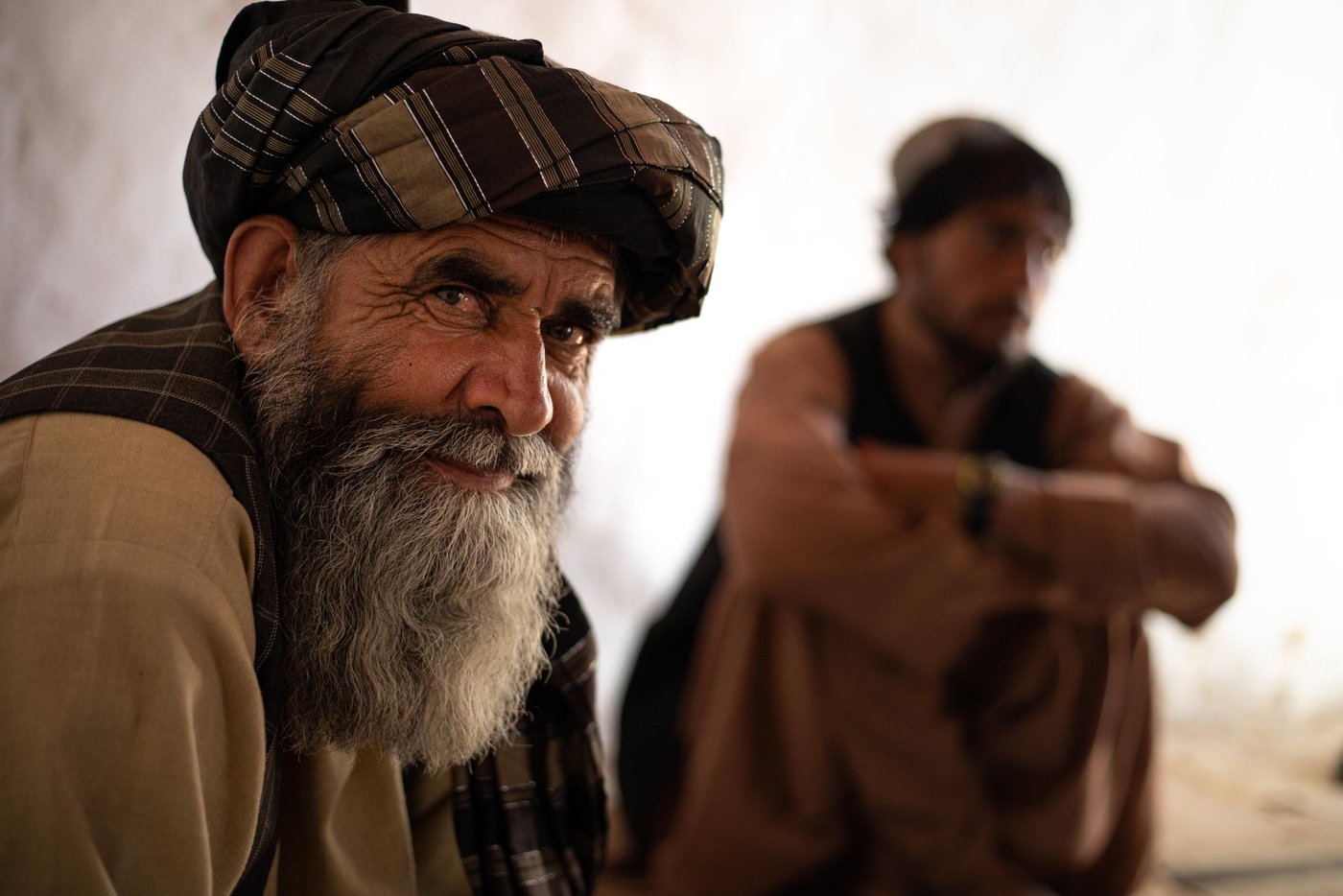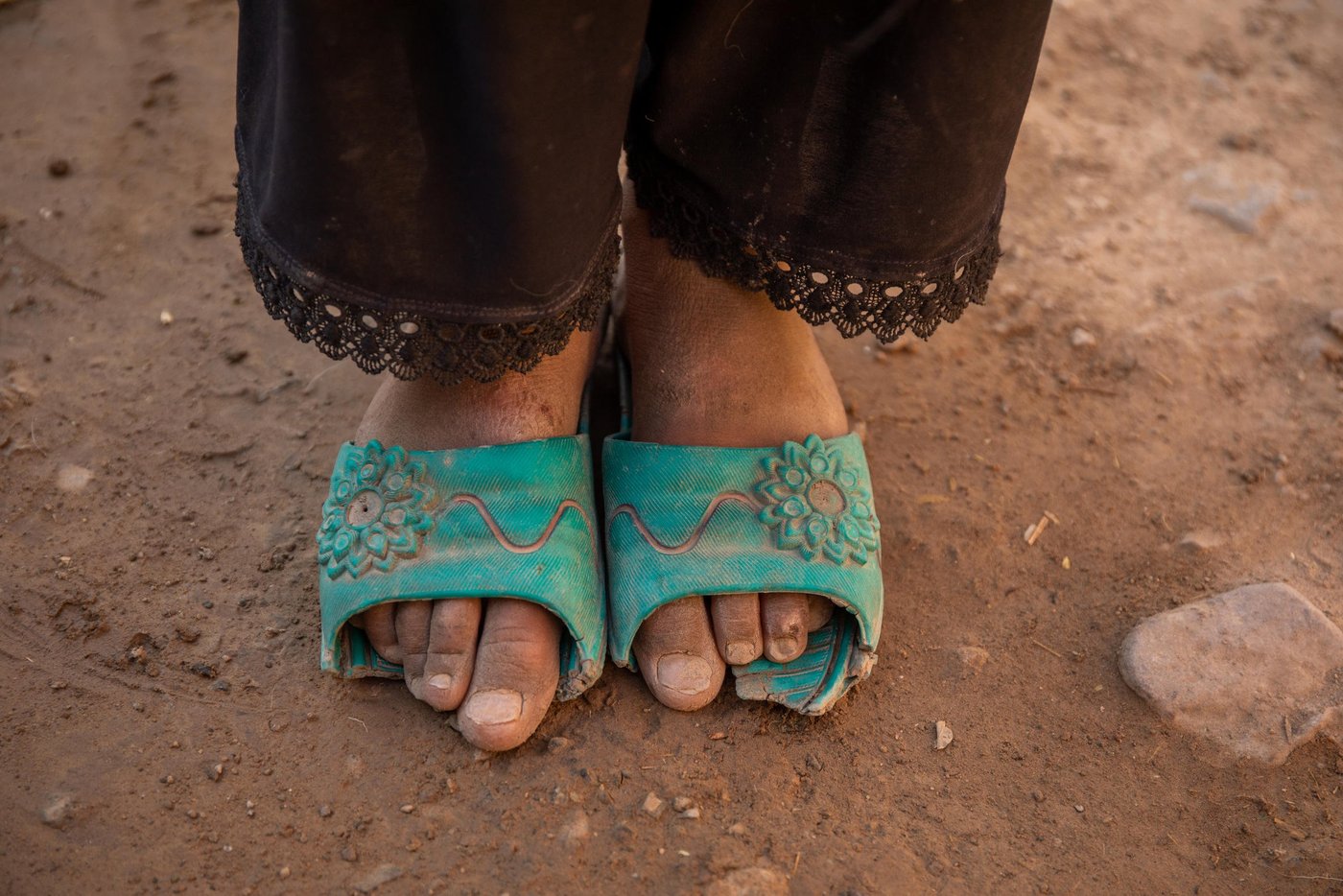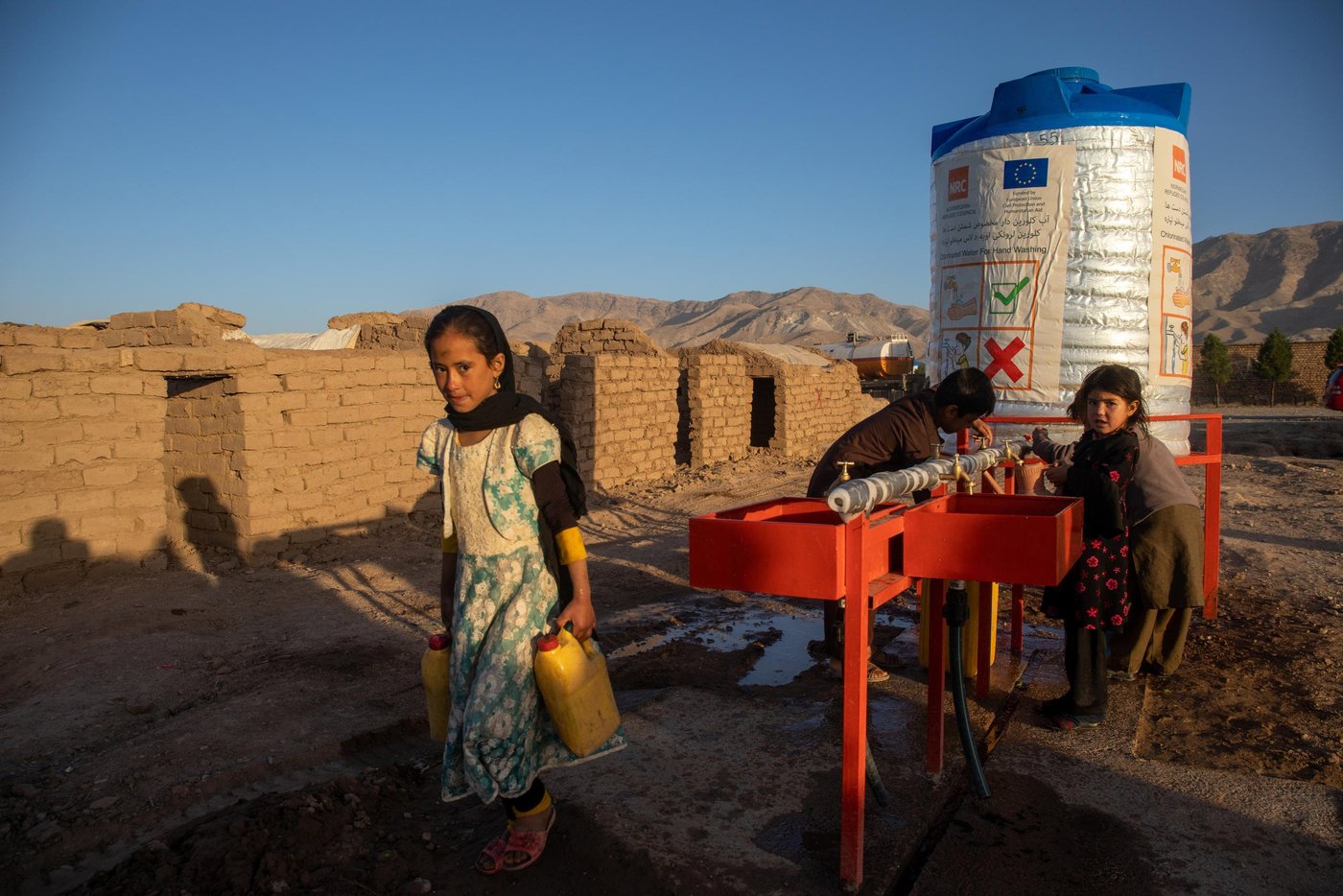Daily life was already a struggle for displaced Afghans. Families who fled their homes due to conflict and natural disasters had their hopes of a new life dashed as the Covid-19 pandemic hit.
In March, as the first cases of Covid-19 were reported in western Herat province, we found that most families in Shaidayee were reporting lack of water as their main concern. With no water easily available to wash their hands, these 14,000 displaced Afghans were at increased risk of infection.
The Norwegian Refugee Council (NRC) works to support refugees and displaced people in over 30 countries around the world, including Afghanistan. Support our work today
Giving access to clean water
Mullah Mohammad Ayub, 42, is one of the countless displaced people living in Shaidayee whose heart is beating for home, but who can’t return. “I have lost three sons in this war. Three young sons,” says Ayub. “We can’t go home until peace prevails.”
“Here, accessing water is a great challenge for us. We do not even have water to wash our hands and face.”

With support provided by the European Civil Protection and Humanitarian Aid Operations (ECHO), NRC has been able to provide critical water, sanitation and hygiene assistance in Shaidayee, so that these families can protect themselves during the pandemic.
“Now, we have sufficient water at our doorstep,” says Ayub. “We have enough water for cooking and cleaning. We are not roaming around the camp for a water container and the landlords are happy that we are not troubling them for water anymore.”
![It is early in the morning and Rahmannuddin, 37, has taken water from the water tank for Wudhu ablution and now takes water to make mudbricks for his new makeshift mud house in Shaidayee site.
Rahmannuddin and his family were displaced from Ghormach district in the northwest of Faryab Province. The family fled the area in 2018 because of drought and conflict and now lives on privately owned land in Shaidayee settlement. Rahman and his relatives have been displaced for almost three years and regularly had to move from one place to another.
“When we first came to Hirat, we put our tent in Kahdistan below the highway. Soon the landowner came and removed our makeshift shelters. We tried to negotiate with him, but he wouldn’t hear us. Then we moved to the upper side of the highway in Shaidayee, where we spent last winter and built a small makeshift house for us out of the mudbrick, but the landowner came and asked us to move. Although we have sought his permission to stay on his land, he later dropped our request saying he wanted to build a house for himself there. We had spent a lot of time and energy building that house and we had to start everything from the start once again.”
“As the winter is approaching and it’s getting colder, we had to decide and move to another area. We found an empty plot here and talked to the owner. He allowed us to stay on his land for one winter, however, he warned us not to make a house on his property. We can’t survive in the open during the winter and need to have a roof over our head. We informed your office [NRC] to negotiate with the landlord so that he would not evict us during the winter.”
“Back in Faryab, I had my own two story house with three bedrooms and a big kitchen. The house I live here with my family now is smaller than the one I put my cattle inside there. I was a farmer and had cattle. We had a normal life before the conflict escalated and the area was hit badly by drought.”
Rahmannuddin, has four daughters and the oldest one is only eleven years age, Nazifa, and the youngest one is Zarmina, one and half years old. Rahman has promised his daughter, Siddiga, 9, to marry her off to a relative’s son who is only three years older to her. Nazifa suffers from a mental problem and that’s why he will marry off his second daughter who is healthier compared to oldest one.
“Well, I have four daughters and can’t leave them behind to travel to Iran or Pakistan for work. You can’t work here in Afghanistan. You can see the situation of my house. It doesn’t have a door and a window and my family do not feel safe and protected inside if I am not there. I wish I had my brother or father here to look after my family and I would travel somewhere to get something to them. I had no other option here rather than promising Siddiga for marriage.”
Siddiga, small and shy only plays with her rabbits. She doesn’t have toys or any story books but only two rabbits.
“I like to go to school, but there is no school for displaced families here,” she says. “There is one private school close to the camp, but only five or ten families who can afford the expenses send their children there. My father cannot afford our school expenses if there is not any public school here.”
Rahman’s wife is spinning wool to support her family. She earns 50 AFN ($0.6) in two of four days from spinning. She suffers from a kidney pain but can’t afford to visit a doctor.
Photo: Enayatullah Azad / NRC](/cdn-cgi/image/width=1400,format=auto,fit=crop,height=934,gravity=0.53x0.19/globalassets/images/countries/afghanistan/2020/how-clean-water-is-helping-to-fight-the-pandemic/_mgl0434.jpg)
Fatima, 13 was displaced with her family from Badghis province two and half years ago. She and her family received a hygiene and sanitation package to help protect them against Covid-19.
“Before the distribution we had nothing at home. We received a package that included soaps, shampoos, toothpaste and washing equipment,” said Fatima’s mother.
Raising awareness of the virus and the precautions people should take was vital in stopping the spread in this camp. Through hygiene promotion workshops, NRC has empowered the camp’s residents to play an important role in their community by sharing these messages to help keep people safe.
Abdul Raziq, who attended one of these workshops says: “We have to be careful now to protect ourselves and people around us.”
Further challenges ahead
Early lockdowns to stem the spread of Covid-19 left many without jobs and incomes. This forced some to adopt negative coping mechanisms, such as borrowing money or forcing girls into early marriage just to meet their basic needs. NRC has warned of a possible humanitarian disaster as winter approaches.
Abdul Raziq says: “My two young sons and I worked as daily labourers before Covid-19, and we all lost our jobs when the lockdown restrictions were in place. We couldn’t find a job for almost three months.”

“We have a hard winter ahead,” says Abdul Raziq. “Previously, we were working during the summer to save for the winter months, but this year is totally different. We work and eat what we’ve earned the same day, and there are no savings for the harsh winter ahead. We hope the government and aid agencies will support the families in the camps.”
Female-headed households are at particular risk and as winter arrives along with the second wave of the virus, humanitarian needs are multiplying.
“The winter is approaching, and we do not have food to eat,” says Fatima’s mother. “I always worry about my children and I may lose them due to hunger and cold this winter.”

In southern Kandahar province, NRC identified the high risk of evictions, particularly for women, early on in the pandemic. With ECHO’s support we’ve been able to provide cash-for-rent assistance to 200 female-headed households.
Astrid Sletten is NRC’s country director in Afghanistan, and visited Kandahar to speak with some of the women who had received assistance.
She says: “We know that the loss of livelihoods and income due to the Covid-19 pandemic is having a massive impact on housing security for displaced people, especially women. By providing cash-for-rent assistance, NRC can help to ensure these women and their families are able to stay in their homes – a safe haven while the outside world reels from Covid-19 and conflict.”
***
In total, through ECHO-funded projects, NRC will reach 10,500 households – approximately 73,500 individuals – with life-saving interventions such as hygiene promotion, Covid-19 awareness sessions, hygiene kit distributions, construction of handwashing facilities in schools, Covid-specific protection monitoring and cash-for-rent assistance.


